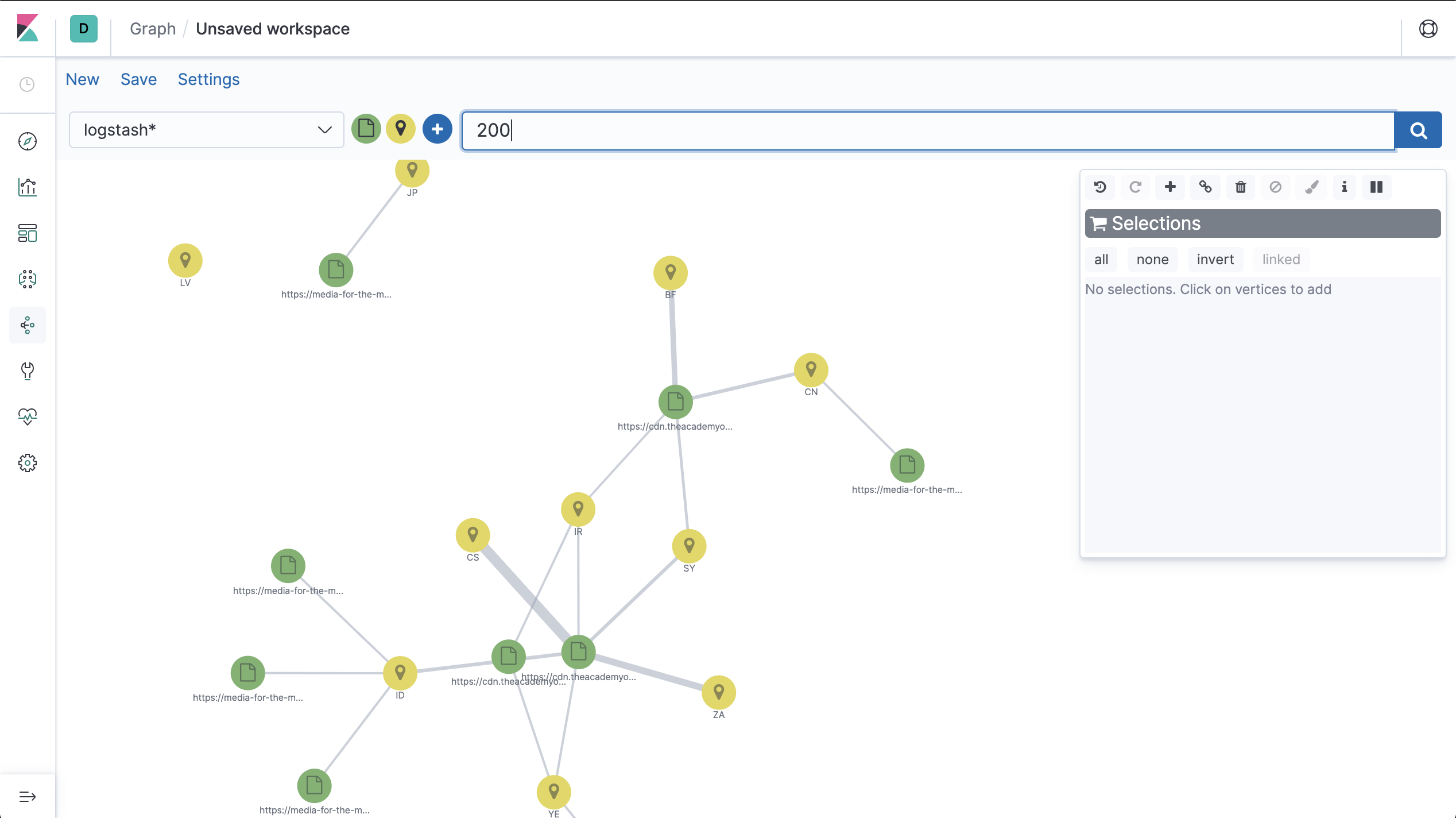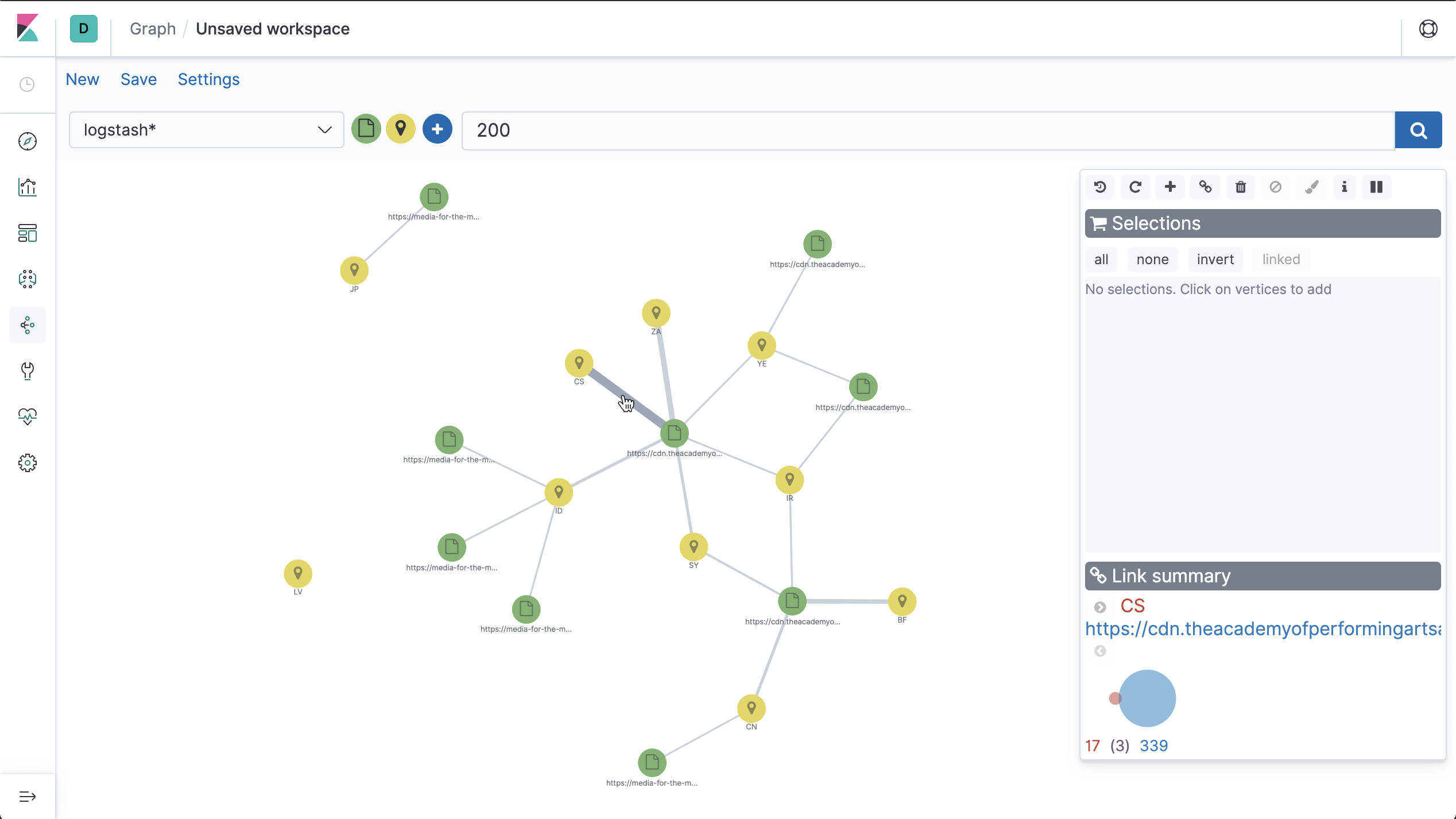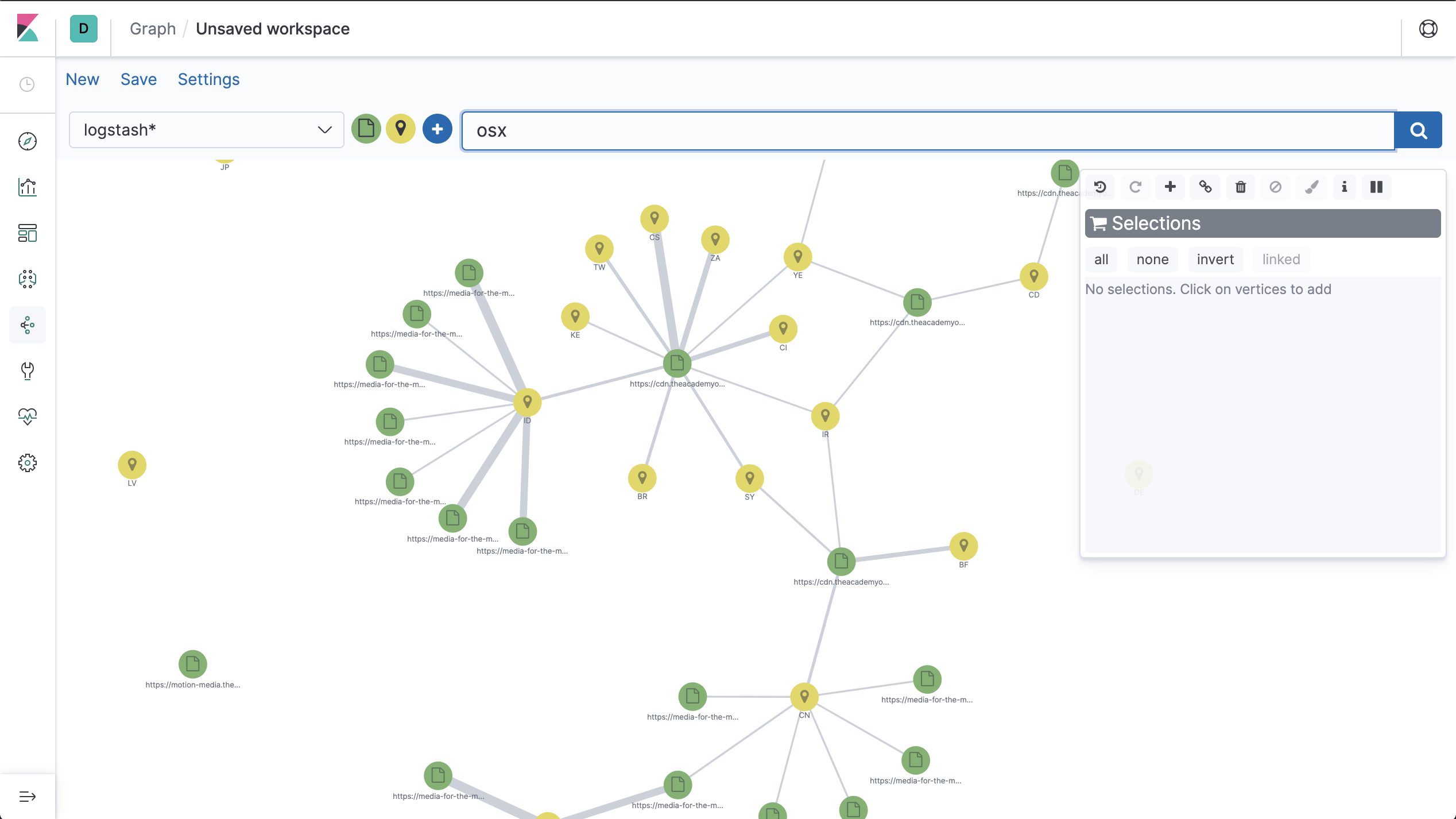Using Graph
editUsing Graph
editGraph is automatically enabled in Elasticsearch and Kibana.
To start exploring connections in your data:
- From the side navigation, open the graph explorer.
-
Select an index pattern to specify what indices you want to explore.
For example, if you are indexing log data with Logstash, you could select the
logstash-*index pattern to visualize connections within the log entries. -
Select one or more multi-value fields that contain the terms you want to graph.
The vertices in the graph are selected from these terms. If you’re visualizing connections between Apache log entries, you could select the
url.rawfield and thegeo.srcfield so you can look at which pages are being accessed from different locations. -
Enter a search query to discover relationships between terms in the selected fields.
For example, to generate a graph of the successful requests to particular pages from different locations, you could search for the 200 response code. The weight of the connection between two vertices indicates how strongly they are related.

-
To view more information about the relationship, click any connection.

-
Use the toolbar buttons to explore additional connections:
-
To display additional vertices that connect to your graph, click Expand
 .
.
-
To display additional
connections between the displayed vertices, click Link

- To explore a particular area of the graph, select the vertices you are interested in, and click Expand or Link.
-
To step back through your changes to the graph, click Undo
 .
.
-
To display additional vertices that connect to your graph, click Expand
-
To see more relationships in your data, submit additional queries.

By default, when you submit a search query, Graph searches all available
fields. You can constrain your search to a particular field using the Lucene
query syntax. For example, machine.os: osx.